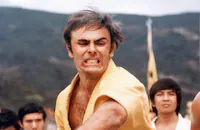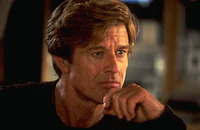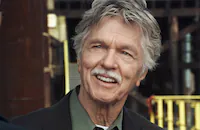Redford plays Private Roy Loomis, the new man in a unit during the Korean War. He finds that combat isn't exactly what he expected, particularly in the frightening activities of Private Endore (John Saxon) who goes on near-psychotic binges of stalking and killing enemy soldiers. The commanding officer overlooks Endore's murderous behavior because he values the soldier's military cunning but Loomis opposes it, especially when Endore reveals his plans for a local Korean boy.
War Hunt was a low-budget quickie, taking just 15 days and $250,000 to make. Not only did that allow the filmmakers the freedom to explore an unconventional and controversial subject but the film itself turned out to be a fortuitous assignment for several future filmmakers. Redford, for instance, formed a friendship with fellow actor Sydney Pollack who later moved behind the camera, directing Redford in seven films. According to persistent rumors there were two other future directors on the set: Francis Ford Coppola (The Godfather, 1972) drove equipment trucks and Noel Black (Pretty Poison, 1969) did electrical work. Among the cast members, Tom Skerritt would go to Alien (1979), Gavin MacLeod to TV's McHale's Navy (1962-1964) and The Love Boat (1977-1986), and Anthony Ray to a busy producing career (such as The Rose, 1979). War Hunt did win an award at the Locarno International Film Festival and was chosen as one of the year's best English-language films by the National Board of Review.
Even with such powerhouse talent much of the credit for War Hunt's success goes to director Denis Sanders. He started his wide-ranging career in 1955 with a Best Short Subject Oscar (with a second in 1970 for the documentary Czechoslovakia 1968) but really began his Hollywood career a few years later by co-writing the script for The Naked and the Dead (1958) with his brother. Sanders was fascinated by harsh subject matter which undoubtedly limited his commercial prospects but he still directed such films as the concert documentary Elvis: That's the Way It Is (1970), the Norman Vincent Peale biopic One Man's Way (1964), and Invasion of the B-Girls (1973), a favorite of film critic Roger Ebert (no joke).
Producer: Noel Black (assistant producer), Denis Sanders (co-producer), Terry Sanders
Director: Denis Sanders
Screenplay: Stanford Whitmore
Cinematography: Ted D. McCord
Film Editing: John Hoffman
Original Music: Bud Shank
Principal Cast: John Saxon (Private Raymond Endore), Robert Redford (Private Roy Loomis), Charles Aidman (Captain Wallace Pratt), Sydney Pollack (Sergeant Van Horn), Tommy Matsuda (Charlie),Gavin MacLeod (Private Crotty).
BW-83m. Letterboxed.
by Lang Thompson























